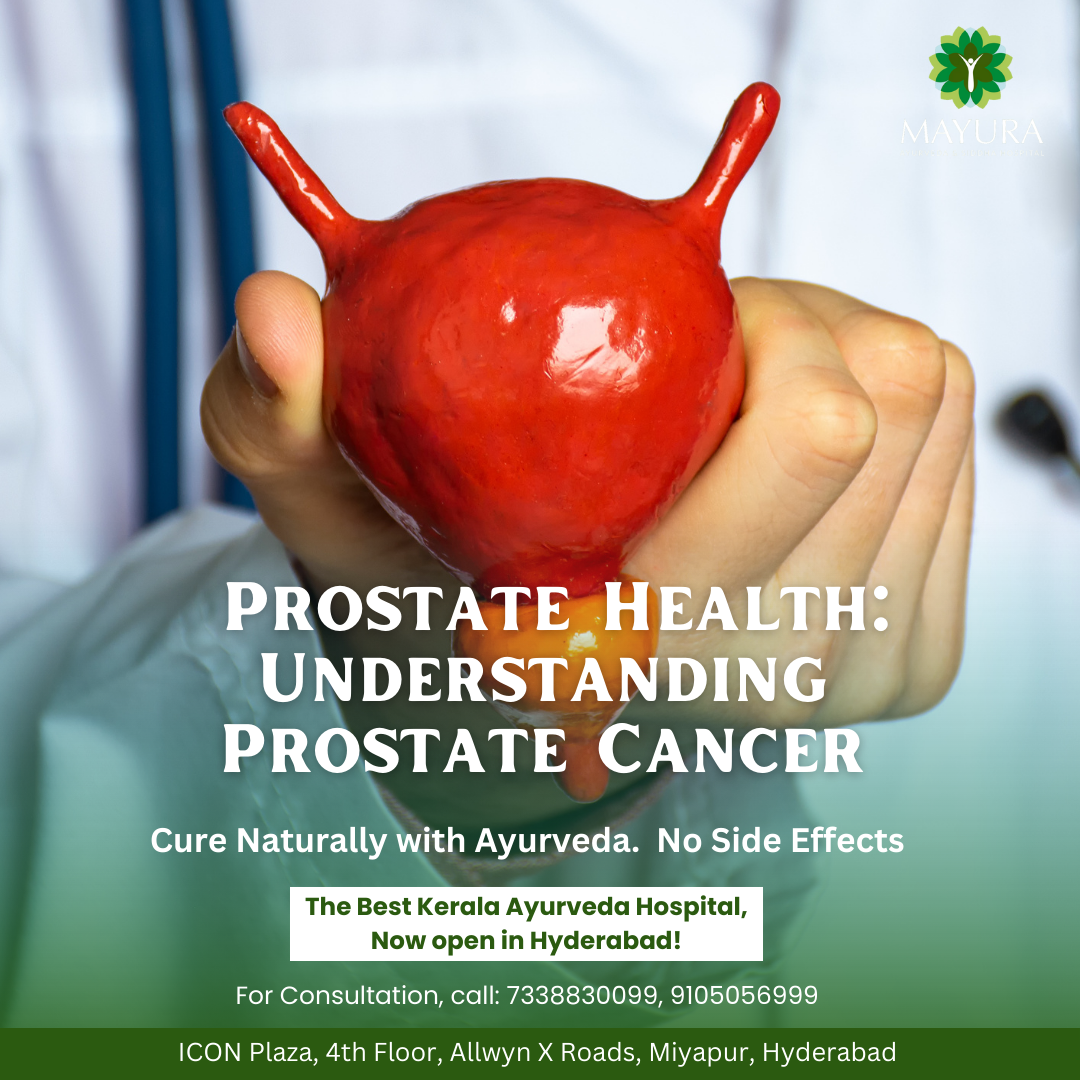The prostate gland, a walnut-sized organ in the male reproductive system, plays a vital role in sexual function and urinary health. As men age, prostate health becomes increasingly important. Mayura Ayurveda & Siddha Hospital is dedicated to promoting men’s well-being and offers valuable insights into understanding your prostate and potential risks like prostate cancer.
The Crucial Role of the Prostate
The prostate gland sits below the bladder and surrounds the urethra, the tube that carries urine from the bladder out of the body. The prostate’s primary functions include:
Producing seminal fluid: This fluid nourishes and transports sperm during ejaculation.
Maintaining bladder control: The prostate muscles help regulate urine flow.
Sexual function: The prostate contributes to a man’s sexual arousal and erectile function.
Understanding Age-Related Changes in the Prostate
As men enter their 40s and 50s, the prostate gland naturally begins to enlarge. This condition, known as benign prostatic hyperplasia (BPH), is not cancerous but can cause bothersome urinary symptoms like:
Frequent urination, especially at night
Difficulty starting urination
Weak urine stream
Urgent need to urinate
While BPH is not a direct threat, it’s crucial to differentiate it from other prostate conditions, particularly prostate cancer.
Prostate Cancer: Awareness and Early Detection
Prostate cancer is the most common cancer among men after skin cancer. It develops when abnormal cells in the prostate gland grow uncontrollably. Early detection is crucial for successful treatment. Here’s a table summarizing prostate cancer risk factors and symptoms:
| Risk Factors | Symptoms (May not be present in early stages) |
|---|---|
| Age (over 50) | Frequent urination, especially at night |
| Family history of prostate cancer | Difficulty starting urination |
| African American or Hispanic ethnicity | Weak urine stream |
| Obesity | Urgent need to urinate |
| Inactivity | Blood in urine or semen |
Importance of Regular Prostate Screenings
Early detection of prostate cancer significantly improves treatment outcomes. Here are some screening tests recommended by Mayura Ayurveda & Siddha Hospital:
Digital rectal exam (DRE): A doctor feels the prostate for abnormalities.
Prostate-specific antigen (PSA) blood test: Measures PSA levels in the blood, which may be elevated in prostate cancer.
It’s important to note:
A slightly elevated PSA level doesn’t necessarily indicate cancer. Other factors can also influence PSA levels.
A normal PSA level doesn’t guarantee the absence of cancer.
Treatment Options for Prostate Cancer
Depending on the stage and aggressiveness of the cancer, various treatment options may be available at Mayura Ayurveda & Siddha Hospital. These include:
Active surveillance: Regularly monitoring the cancer for any changes without immediate treatment.
Surgery: Surgical removal of the prostate gland (radical prostatectomy) is a common option.
Radiation therapy: High-energy beams target and destroy cancer cells.
Hormone therapy: This therapy reduces testosterone levels, slowing cancer growth.
Ayurvedic and Siddha therapies: Mayura Ayurveda & Siddha Hospital explores the potential benefits of traditional therapies to manage symptoms and improve overall well-being alongside conventional treatment.
Taking Charge of Your Prostate Health
Here are some steps you can take to promote prostate health:
Maintain a healthy weight: Obesity increases prostate cancer risk.
Eat a balanced diet: Include plenty of fruits, vegetables, and whole grains.
Exercise regularly: Physical activity helps maintain a healthy weight and reduces overall cancer risk.
Limit alcohol and processed foods: These can contribute to prostate problems.
Manage stress: Chronic stress can impact overall health, including prostate function.
Schedule regular checkups: Early detection is key. Discuss prostate health and screening options with your doctor at Mayura Ayurveda & Siddha Hospital.
Conclusion
Mayura Ayurveda & Siddha Hospital is committed to men’s health. We understand the importance of prostate health and encourage men to be proactive about their well-being. By understanding the prostate’s role, recognizing potential risks, and scheduling regular checkups, you can take charge of your prostate health and live a long, healthy life.
















